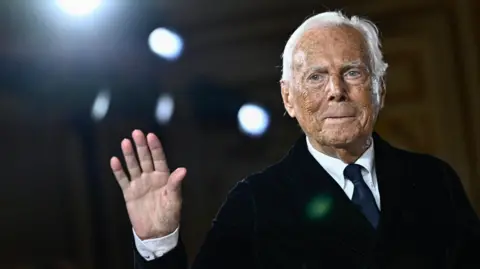As the summer season unfolds, the iconic Teatro alla Scala in Milan has announced a renewed commitment to a formal dress code, highlighting its aspiration to uphold the traditions of operatic elegance. This legendary venue, revered for its rich history and esteemed performances, is enforcing rules that prohibit patrons from donning casual attire, including tank tops, flip-flops, and shorts. The theater has begun prominently displaying signs reminding guests to dress appropriately, maintaining a standard that reinforces the cultural significance of the opera experience.
While many attendees have adopted a more relaxed approach to attire in recent years, with fewer opting for tuxedos or formal gowns, La Scala’s spokesperson Paolo Besana emphasizes that establishing “minimum rules” is crucial to inclusivity of diverse audiences while simultaneously preserving the decorum expected within its walls. According to tickets, guests who arrive improperly dressed will not only be denied entry but will also forfeit their ticket costs.
This initiative reflects a broader trend seen in European opera houses that grapple with similar tensions between tradition and modernization. Renowned figures in the opera community, such as John Allison from Opera News, recognize the unique circumstances that make opera a special event, often warranting elevated attire, whilst also suggesting a more relaxed approach can be taken. However, opinions vary, with some voices, including critic Andrew Mellor, suggesting that the focus should remain on the performance itself rather than audience attire.
As La Scala inches toward this balanced approach to maintaining its historical standards while welcoming a new generation of theatre-goers, the conversation surrounding dress codes in cultural spaces continues to evolve, with proponents on both sides weighing the significance of tradition against the inevitability of change.
While many attendees have adopted a more relaxed approach to attire in recent years, with fewer opting for tuxedos or formal gowns, La Scala’s spokesperson Paolo Besana emphasizes that establishing “minimum rules” is crucial to inclusivity of diverse audiences while simultaneously preserving the decorum expected within its walls. According to tickets, guests who arrive improperly dressed will not only be denied entry but will also forfeit their ticket costs.
This initiative reflects a broader trend seen in European opera houses that grapple with similar tensions between tradition and modernization. Renowned figures in the opera community, such as John Allison from Opera News, recognize the unique circumstances that make opera a special event, often warranting elevated attire, whilst also suggesting a more relaxed approach can be taken. However, opinions vary, with some voices, including critic Andrew Mellor, suggesting that the focus should remain on the performance itself rather than audience attire.
As La Scala inches toward this balanced approach to maintaining its historical standards while welcoming a new generation of theatre-goers, the conversation surrounding dress codes in cultural spaces continues to evolve, with proponents on both sides weighing the significance of tradition against the inevitability of change.





















